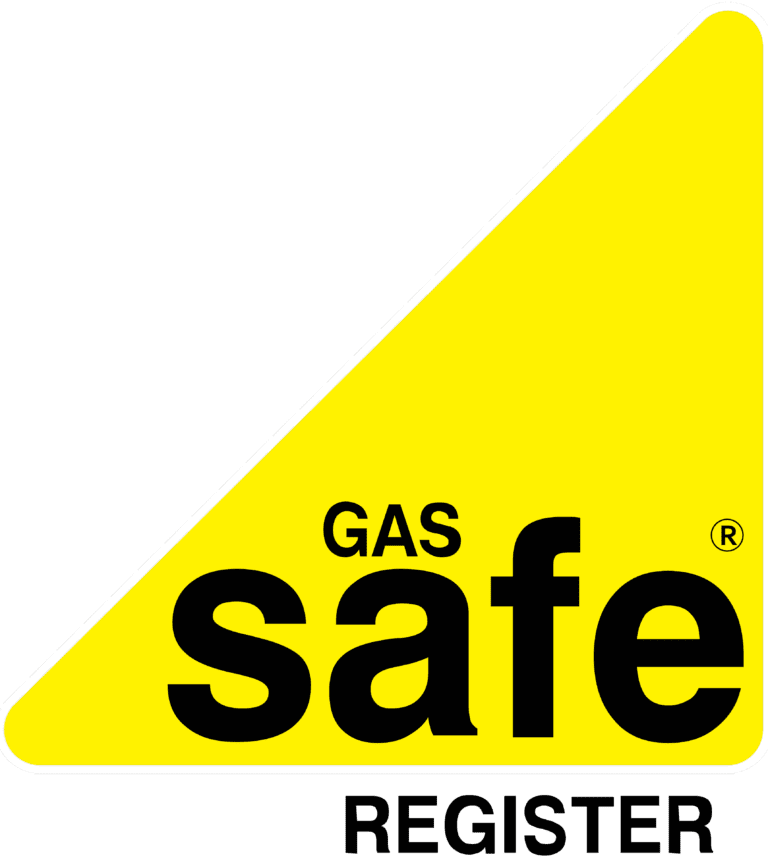Table of Contents
Worcester boilers are renowned for their efficiency and reliability, but like any mechanical device, they can encounter problems from time to time. Troubleshooting these issues can be daunting, especially if you lack the necessary knowledge. Fear not! In this comprehensive guide, we will delve into Troubleshooting Common Worcester Boiler Problems and offer practical solutions to get your boiler back in perfect working condition.
Troubleshooting Common Worcester Boiler Problems
1. No Heat or Hot Water
One of the most distressing issues with a Worcester boiler is when it fails to produce heat or hot water. If you’re shivering in your home, there are a few potential culprits to consider:
Low Water Pressure: Check the pressure gauge on the boiler; if it’s too low, follow the manufacturer’s instructions to repressurize the system.
Faulty Thermostat: Ensure that the thermostat is set correctly and functioning. Replace the batteries if needed, and consider having a professional inspect it.
Broken Diaphragm: A damaged diaphragm can hinder water flow. This requires professional assistance to fix.
2. Strange Noises from the Boiler
Is your Worcester boiler making unusual noises that are making you uneasy? These sounds might indicate underlying problems:
Banging Noises: This could be due to kettling, caused by a buildup of limescale within the heat exchanger. Powerflushing the system can often resolve this issue.
Whirring or Whining: These sounds may indicate a malfunctioning pump or fan. It’s best to call a qualified engineer to diagnose and fix the problem.
3. Boiler Leaking
If you notice water pooling around your Worcester boiler, it’s essential to identify the source of the leak promptly:
Pressure Valve Leak: The pressure relief valve may be releasing excess pressure. In some cases, it can be fixed by a professional, but a replacement might be necessary.
Pipe or Tank Leaks: Damaged pipes or tanks can lead to leaks. An engineer can assess the situation and recommend the appropriate solution.
4. Pilot Light Goes Out
A pilot light that keeps extinguishing can be frustrating. Here’s what you can do:
Blocked Pilot Light: Clean the pilot light and the surrounding area from any dirt or debris that might be affecting it.
Faulty Thermocouple: The thermocouple may need replacement if it’s not detecting the flame.
5. Frozen Condensate Pipe
During colder months, the condensate pipe of your Worcester boiler might freeze, causing it to shut down:
- Thawing the Pipe: Gently thaw the frozen pipe using warm water or a hot water bottle. Avoid using boiling water to prevent damage.
6. Radiators Not Heating Up
If some radiators in your home are cold while others remain hot, consider the following:
Bleeding Radiators: Air trapped inside the radiators can prevent proper heating. Bleed the radiators to release the air.
Balancing the System: Balancing the central heating system ensures an even distribution of hot water to all radiators.
7. Boiler Keeps Cycling On and Off
If your Worcester boiler is cycling too frequently, it might be due to:
Blocked Condensate Pipe: Check for blockages in the condensate pipe that might be affecting the boiler’s operation.
Thermostat Issues: Faulty thermostats can cause the boiler to switch on and off unnecessarily. Get it checked by a professional.
8. Gas Supply Problems
A lack of gas supply can leave you without heating or hot water. Investigate the following:
Check Gas Supply: Ensure that the gas supply to your property is working correctly and not interrupted.
Gas Valve Issue: A faulty gas valve can prevent the boiler from receiving gas. Seek professional help for repairs.
9. Unresponsive Boiler Controls
If your Worcester boiler is not responding to controls, try these troubleshooting steps:
Check Power Supply: Ensure the boiler is receiving power. If not, check the circuit breakers and fuses.
Faulty Wiring: Inspect the wiring and connections for any faults or damage.
10. Radiators Not Heating Evenly
If some parts of the radiator are hot while others remain cold, you can try the following:
Bleeding Radiators: Release trapped air by bleeding the radiators.
Thermostat Placement: Ensure there are no heat sources near the thermostat, affecting its accuracy.
11. Boiler Displaying Error Codes
When your Worcester boiler displays error codes, refer to the manufacturer’s manual to understand the problem:
Error Code Definitions: Familiarize yourself with the error codes and their meanings from the manual.
Troubleshooting Steps: Follow the recommended troubleshooting steps to resolve the issue.
12. Boiler Ignition Problems
If your Worcester boiler struggles to ignite, consider the following:
Gas Supply: Verify that the gas supply is functioning correctly.
Ignition Electrode: The ignition electrode might be dirty or damaged, hindering the ignition process.
13. Boiler Not Responding to Thermostat
When your boiler doesn’t respond to the thermostat, consider these potential causes:
Thermostat Settings: Check if the thermostat is set correctly and in working order.
Wiring Issues: Inspect the wiring for any loose or damaged connections.
14. Uneven Heating in Different Rooms
If certain rooms are too hot or too cold, try these steps:
Thermostat Calibration: Check if the thermostat is calibrated correctly for accurate temperature readings.
Balancing Radiators: Balance the radiators to ensure uniform heating throughout the house.
15. Low Boiler Pressure
Low boiler pressure can cause heating problems. Here’s what you can do:
Re-pressurize the System: Follow the manufacturer’s instructions to re-pressurize the boiler.
Check for Leaks: Inspect the system for any leaks that might be causing the pressure drop.
16. Boiler Losing Pressure
If your Worcester boiler keeps losing pressure, it might be due to:
Pressure Relief Valve Issue: The pressure relief valve might be faulty and needs replacement.
Expansion Vessel Problems: A malfunctioning expansion vessel can cause pressure loss. Get it checked by a professional.
17. Boiler Overheating
An overheating boiler can be dangerous. Look out for the following:
Check Thermostat Settings: Ensure the thermostat is set correctly to prevent the boiler from overheating.
Circulation Issues: Blocked pipes or pumps can cause the boiler to overheat. Seek professional assistance to fix the problem.
18. Strange Smells from the Boiler
Unusual odors coming from the boiler can be concerning. Consider the following:
Gas Leak: If you suspect a gas leak, turn off the gas supply immediately and call a gas engineer.
Burnt Smell: A burning smell might indicate an electrical issue. Switch off the boiler and seek professional help.
19. Boiler Keeps Shutting Down
If your Worcester boiler keeps shutting down unexpectedly, check the following:
Blocked Condensate Pipe: A blocked condensate pipe can cause the boiler to shut down. Thaw it if frozen or clear any blockages.
Airflow Issues: Ensure the boiler’s ventilation and air intake are unobstructed.
20. Boiler Pressure Too High
High boiler pressure can lead to safety hazards. Consider the following:
Bleed Radiators: Overpressure can occur due to trapped air in the system.
Pressure Release Valve: The pressure release valve might need replacement if it’s faulty.
21. Boiler Not Producing Hot Water Only
If your boiler provides heating but no hot water, look into the following:
- Diverter Valve Issues: The diverter valve may not be directing water to the hot water circuit. A professional should inspect and replace it if needed.
22. Boiler Lockout
Boiler lockout can happen due to various reasons. Consider these steps:
Check for Error Codes: Identify the error code displayed on the boiler and follow the manual’s instructions.
Reset the Boiler: Try resetting the boiler to see if the problem is resolved.
23. Boiler Pump Problems
A faulty pump can lead to heating issues. Consider the following:
Inspect the Pump: Check the pump for signs of damage or blockages.
Pump Speed Settings: Adjust the pump speed settings as per the manufacturer’s recommendations.
24. Boiler Constantly Running
If your Worcester boiler is continuously running, consider the following:
Check Thermostat: Ensure the thermostat is set correctly and not stuck in the “on” position.
Zone Valve Issue: Zone valves control heating in different areas of the house. A malfunctioning valve can cause continuous running.
25. Boiler Safety Precautions
Lastly, always prioritize safety when Troubleshooting Common Worcester Boiler Problems:
Gas Safety Checks: Schedule regular gas safety checks with a qualified engineer to ensure the boiler’s safe operation.
Professional Assistance: If you’re uncertain or uncomfortable dealing with boiler issues, seek the help of a certified professional.
Frequently Asked Questions (FAQs)
Q: Why is my Worcester boiler not producing heat? A: Low water pressure, a faulty thermostat, or a broken diaphragm can be the culprits. Check the pressure, replace the thermostat batteries, and call a professional for diaphragm repairs.
Q: How do I thaw a frozen condensate pipe? A: Gently thaw the pipe using warm water or a hot water bottle. Never use boiling water to avoid damage.
Q: Should I be concerned about strange boiler noises? A: Yes, strange noises can indicate problems like kettling or pump/fan issues. Have a professional inspect the boiler to address the source of the sounds.
Q: Can I fix a boiler leak myself? A: It’s best to avoid DIY fixes for boiler leaks, as they can be complex. Call a professional engineer to identify and repair the leak.
Q: What should I do if the pilot light keeps going out? A: Clean the pilot light and check the thermocouple for any issues. If the problem persists, get professional help.
Q: How often should I bleed my radiators? A: You should bleed your radiators whenever they feel cold at the top. Ideally, do this at the beginning of the heating season.
FAQS
Low water pressure, a faulty thermostat, or a broken diaphragm can be the culprits. Check the pressure, replace the thermostat batteries, and call a professional for diaphragm repairs.
Gently thaw the pipe using warm water or a hot water bottle. Never use boiling water to avoid damage.
Yes, strange noises can indicate problems like kettling or pump/fan issues. Have a professional inspect the boiler to address the source of the sounds.
It’s best to avoid DIY fixes for boiler leaks, as they can be complex. Call a professional engineer to identify and repair the leak.
Clean the pilot light and check the thermocouple for any issues. If the problem persists, get professional help.
You should bleed your radiators whenever they feel cold at the top. Ideally, do this at the beginning of the heating season.
Conclusion
Troubleshooting Common Worcester Boiler Problems can be a challenging task, but armed with the right knowledge, you can overcome most issues. Remember to prioritize safety and seek professional help when necessary. Regular maintenance and timely repairs can ensure your Worcester boiler continues to provide efficient and reliable heating for years to come.

